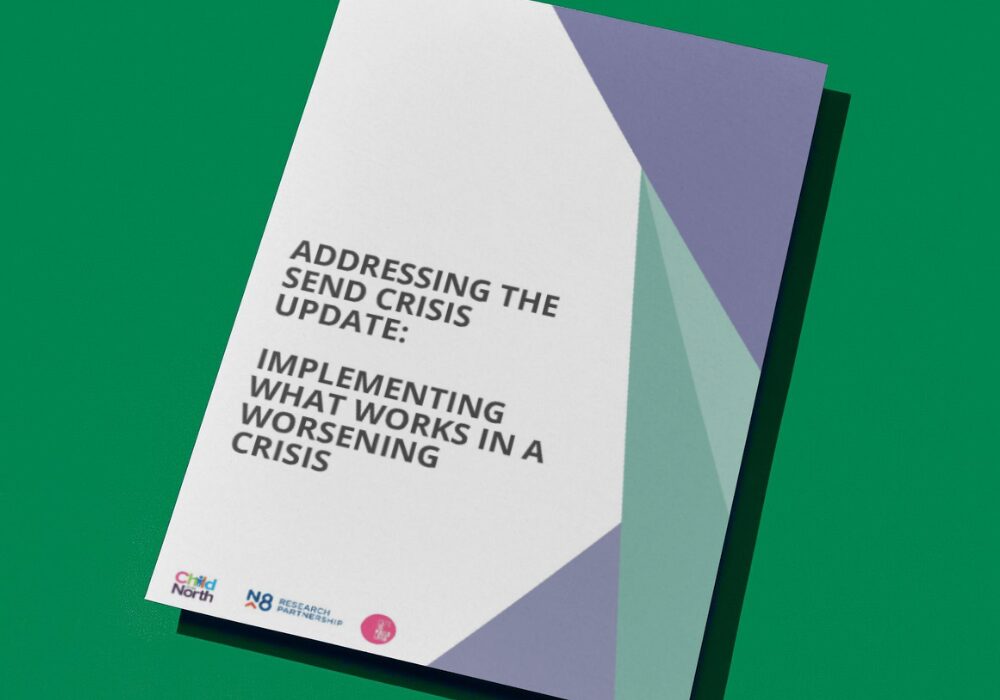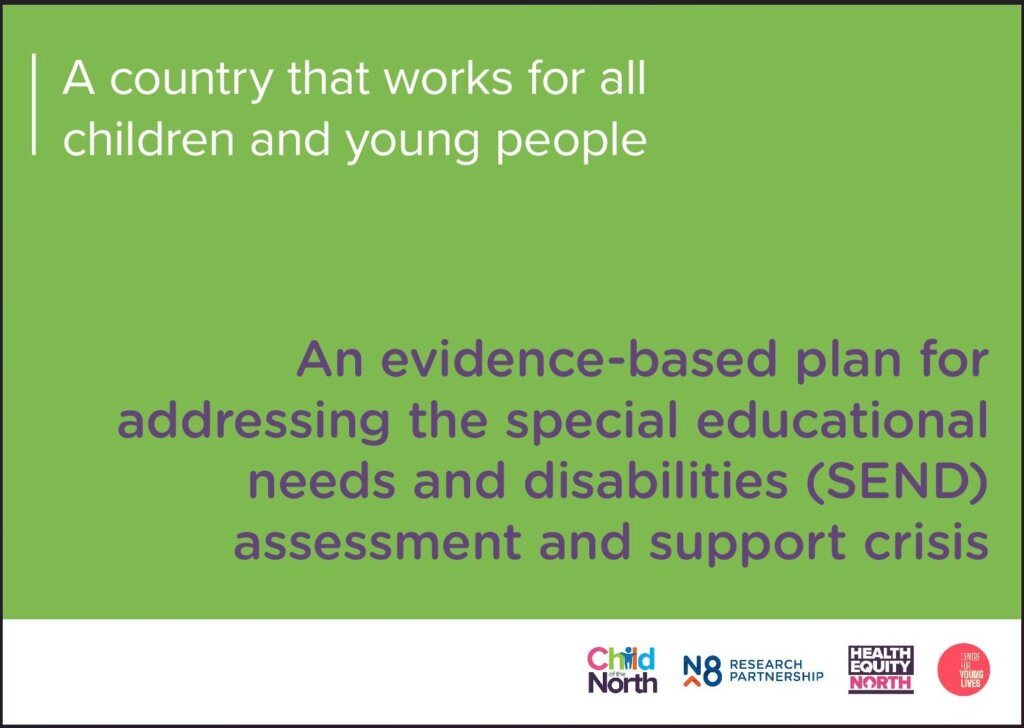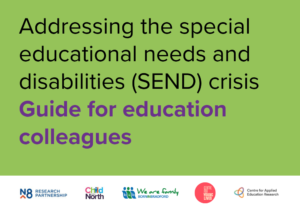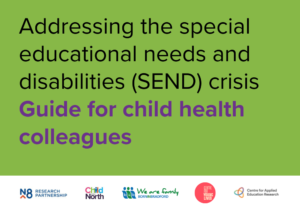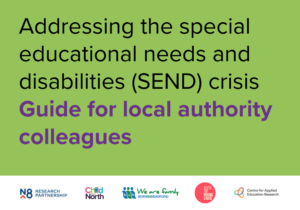Addressing the special educational needs and disabilities (SEND) assessment and support crisis
For a country that works for all children and young people.
We are calling on the government to put children first. Our 2024 report series provides evidence-based plans and recommendations on how to improve outcomes for children and young people in the North of England and beyond. Published alongside 2025 report updates, new practitioner toolkits have been designed to support schools, child health services, and local authorities to implement the report recommendations and put children first. #ChildrenFirst
In 2024, Child of the North and Centre for Young Lives initiated a major campaign calling on the government to build a country that works for all children and young people. This campaign delivered a series of reports and webinars on twelve key topics identified by Northern child health leaders as major issues of concern, including poverty, special educational needs, school attendance and mental health. These reports provide rigorous research and pragmatic, evidence-based recommendations.
First published in July 2024, the sixth report in the series An evidence-based plan for addressing the special educational needs and disabilities (SEND) assessment and support crisis, revealed the scale of the crisis facing many children and young people with SEN(D), with some families waiting years for assessments.
The report put forward a new evidence-based plan to support the new Government in its mission to widen opportunity, by tackling the poor identification of SEN(D), the postcode lottery of EHC plans, and reducing the huge numbers of children not receiving the support they need to reach their full potential.
An update, released on Friday 17 October 2025, is the sixth update in a twelve-week #ChildrenFirst campaign, drawing attention back to the issues highlighted in the series, and providing a series of toolkits designed to support schools, child health services and local authorities to implement the report recommendations and improve outcomes for all children.
How To Guides
A series of toolkits have been developed to help practitioners and organisations take practical steps to improve the health and wellbeing of the children and young people with whom they work directly. Building on the findings of the Child of the North reports, these ‘How To’ guides provide evidence and suggestions about how all parties can work together.
Webinar
In August 2024 a number of the report’s authors came together to discuss the report’s findings and policy recommendations, including:
- Amy Atkinson (Lancaster University)
- Uta Papen (Lancaster University)
- Jennifer Duncan (Tees Valley Education)
- Shannon Hatton-Corcoran (Trafford Emotionally Based School Non-Attendance Working Group)
Anne Longfield, Executive Chair of the Centre for Young Lives, said:
“The SEND system is broken. Many families talk about the traumatic impact it has on their lives as they struggle to find support for their children. They are often at their wits’ end, deeply frustrated at the waiting lists and the layers of bureaucracy and hoops they need to jump through, fearful that their children’s opportunities to do well at school and beyond are being held back by an inadequate, underfunded, and overstretched system.
“Tackling the delays, the poor early identification, and the postcode lottery they have inherited should be a priority for new Ministers. This report puts forward a new evidence-based plan to identify SEND earlier and cut assessment times.
“I welcome the new Secretary of State’s decision to give responsibility for improving SEND provision to the Schools Minister, and I hope this is the beginning of a fresh start for reforming a broken system.
“We need to level the playing field of support nationally, prioritising those areas of the country which are failing to meet the 20-week goal, and being much more creative about how to achieve it.
“Ensuring that children with SEND have the support they need will also be essential to tackling the school attendance crisis, supporting all children to flourish and succeed in school, and to meeting the new Government’s ambitions to widen opportunity.”
Professor Mark Mon Williams, Child of the North report series editor, said:
“Our collective failure to support SEND is a millstone around the neck of the UK. The new government will improve the lives of millions of children and grow the economy by ‘following the evidence’. The time has come to support every child to thrive in school, and ensure the benefits of a healthy and well educated population are reaped by the UK.”
Dr Amy Atkinson, Lancaster University and Report Author, said:
“The current SEND system is failing children and young people. Urgent action is needed to ensure that children, young people, and their families receive the support they need and are entitled to.”
Professor Uta Papen, Lancaster University and Report Author, said:
“The SEND system is in crisis. There’s a postcode lottery, children and families experience very long waiting times and schools, despite best intentions, more often than not, don’t have the resources to help all children in the way they’d like to. But there’s a lot we can do. Our report, drawing on evidence based practices and new research illustrates a number of promising approaches and solutions ready to be adopted widely and promising to make a real difference to children and young people with SEND.”
Sign up for updates on our 2024/25 Campaign
We will only use this data for the purposes of providing updates on the Child of the North 2024/25 campaign and report series. For more information see the Privacy Policy at https://www.sheffield.ac.uk/privacy
Previous Reports
Previous reports can be found archived on our Child of the North Reports page.
Contact Us
Stephen Parkinson, Research Partnership Manager
***




